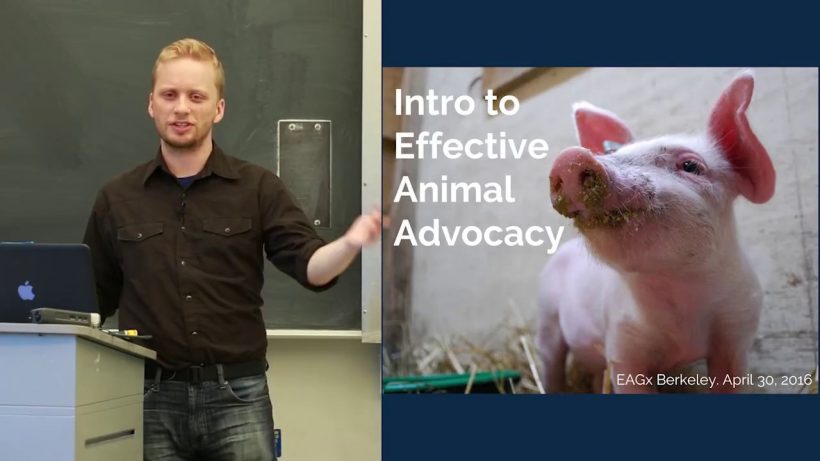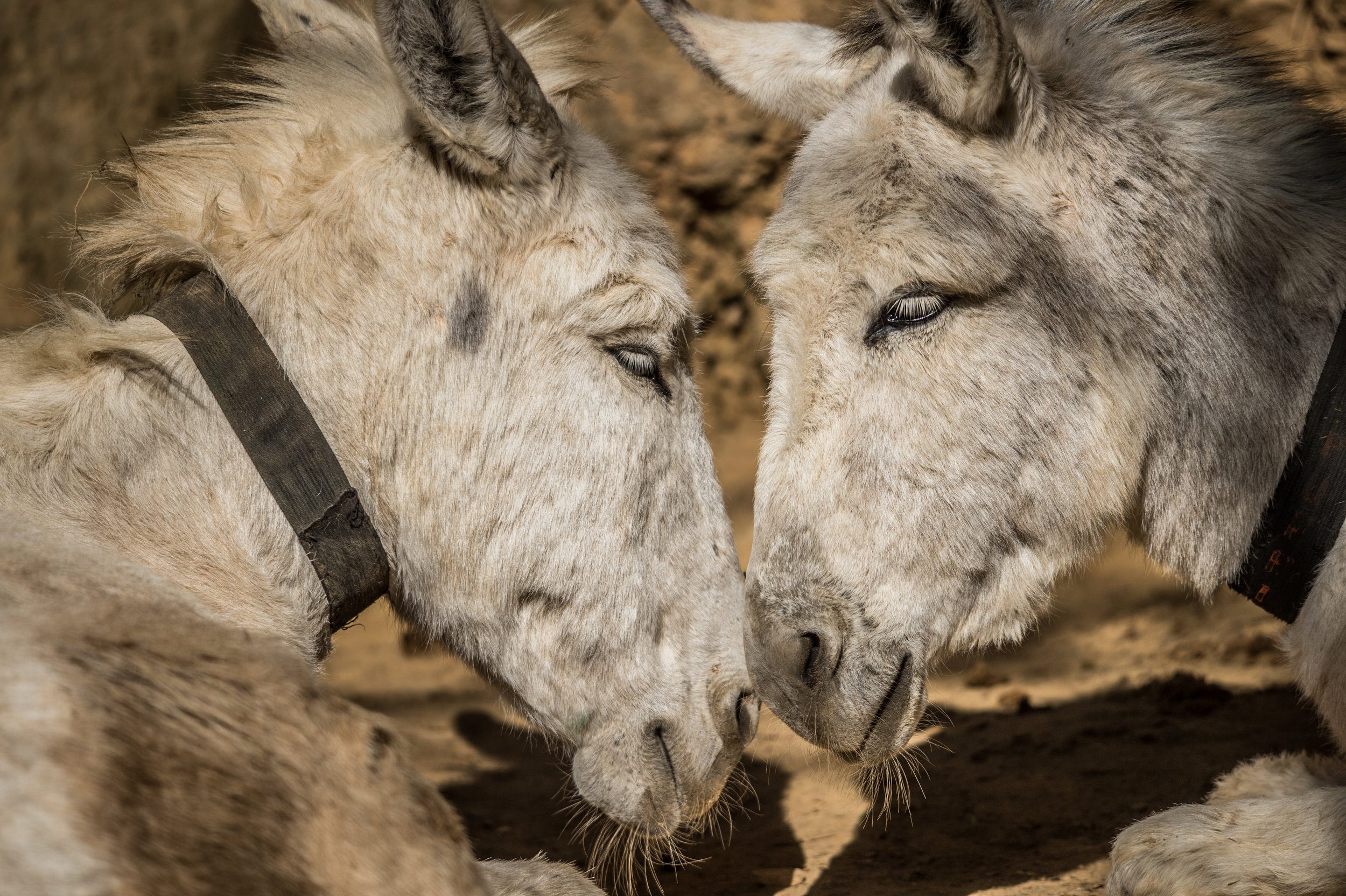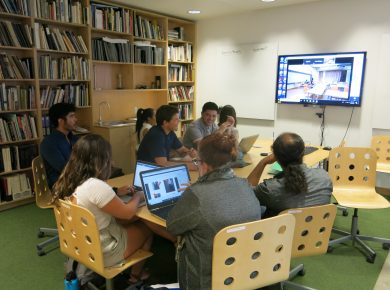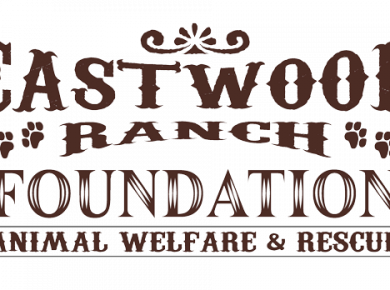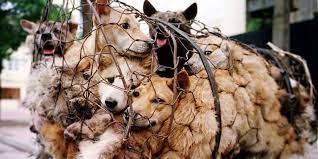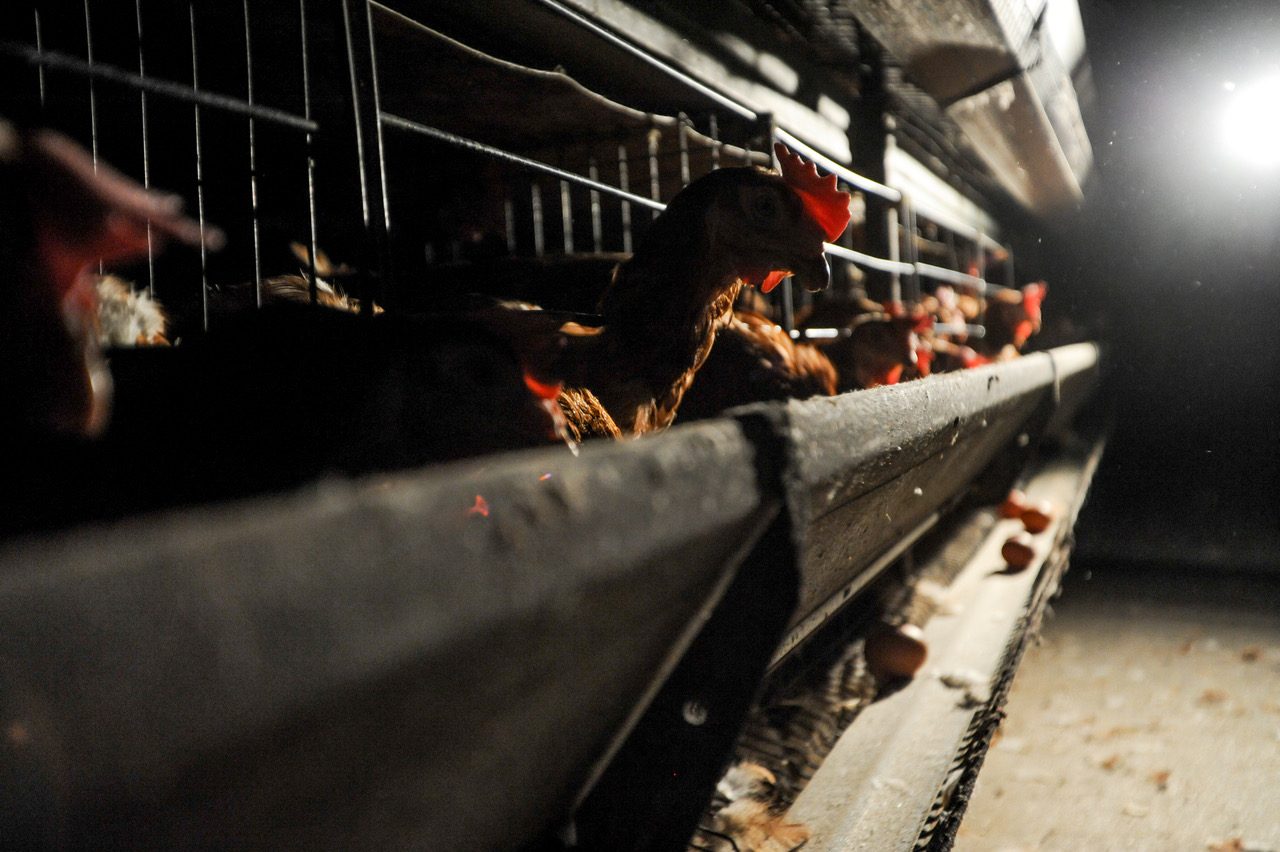
Hens in battery cages. With grateful thanks to – and in complete awe of – Jo-Anne McArthur / Animal Equality. www.weanimals.org
Social media is unveiling the true scope of the global animal exploitation. From factory farming to the leather industry, from Chinese fur markets to the trade in dog meat, the extent of the suffering is unfathomable, leaving the ordinary person at a loss how to help. Sitting at home signing petition after petition feels like a drop in an exceedingly bloody ocean.
Stepping up to answer the dilemma is a new movement known as Effective Animal Advocacy (EAA). Based broadly on ideas of Effective Altruism, Effective Animal Advocacy aims to focus our efforts more precisely on the causes we care about – in this case, animal welfare – using, as far as possible, empirical research not only to do good but to do the most good you can.
Here, four figures in the community speak about its aims and practices and what we can all do to contribute.
JAMIE HARRIS is founder and organiser of Effective Animal Altruism London; he writes a blog about Effective Animal Advocacy called But Can They Suffer. TOBIAS LEENAERT, from the Centre for Effective Vegan Advocacy, is author of the seminal How to Create a Vegan World: a Pragmatic Approach; DAMIEN CLARKSON is founder of Vevolution; HANNAH MASSON-SMYTH helps organise The Humane League’s Work Parties. The Humane League also hosts the Fast Action Network for its campaigns.
What is meant by the term ‘effective animal advocacy?’
TOBIAS: I would define this as advocacy for animals that is focused on results, rather than on rules, philosophies, or theories. To illustrate this, I often present this thought experiment: suppose you’re vegan and are having lunch with a non-vegan friend, in a restaurant where they only have a dreadful vegan burger, and a great-tasting vegetarian burger. If you follow the “rules” of veganism, you’d have to recommend her the vegan burger. If you follow results – and want to be effective – recommending the great-tasting vegetarian burger is the right thing to do.
JAMIE: The term “Effective Animal Advocacy” (sometimes abbreviated to EAA) is used to describe this intersection of the animal rights/welfare/advocacy movements and the Effective Altruism movement (sometimes abbreviated to EA). If Effective Altruism is about working out how we can use our resources to help others the most and do the most good that we can, Effective Animal Advocacy is about targeting these ideas towards helping animals the most. You can join in discussion about EAA here!
DAMIEN: Effective animal advocacy is a movement that uses reason and evidence to enable people to take action to help animals. These actions could be people creating plant-based food products or vegan leather shoes, organising events like Vevolution or working in a high-paying job in order to channel that money into startups and effective animal rights organisations. Essentially, effective animal advocacy is about making pragmatic decisions that ultimately benefit animals.
HANNAH: It’s an intervention in which you are fairly certain that you are going to have an impact, based on research and evidence and what has worked before rather than blindly doing things that you think might make a difference.
It feels like a movement that is gaining in momentum.
TOBIAS: I think mainly that ideas from the Effective Altruism movement have seeped into the animal advocacy movement and are responsible for making it more effectiveness-focused. Critics might say that it’s basically neoliberal ideas of productivity and efficiency “contaminating” this movement – and to some extent that may be true – but that doesn’t make the idea of looking at what really matters, and measuring results, any less valid or important.
JAMIE: As a movement, Effective Altruism certainly seems to be growing across a variety of metrics. Indeed, the rate of progress is increasing across some of these – like the number of people taking the Giving What We Can Pledge to donate 10% of their income to high-impact charities, and the number of people making significant career plan changes, in order to maximise their positive impact. More info on that here! More specifically, the growth of the Effective Animal Advocacy movement has probably mostly been driven by the increased funding to the field provided by the Open Philanthropy Project. In 2017, for example, they recommended $20 million in grants in the field of animal welfare. Beyond this, as the Effective Altruism Movement has grown, it has continued to influence animal advocacy. Most notable is the founding of new research organisations such as Animal Charity Evaluators and Sentience Institute; both the strategic and intervention-specific research and ACE’s charity evaluations have helped animal advocates focus more on effectiveness.
DAMIEN: Veganism is being taken seriously as a movement for social change in the world. A lot of effective animal advocacy thinking is coming out of academia and being adopted by a new generation of vegans and allies who strongly believe in making the best possible decisions for animals. This is a departure from the historically highly emotive form of veganism. This new generation of people – many of whom make up our Vevolution community – come from the mainstream of society. They want to make a difference in society and help animals and are pragmatic about how they might make the most impact.
HANNAH: The scale of suffering caused by factory farming is horrifying and there is an increased awareness and a sense of urgency. Most people want to make a positive difference in the world but we are bombarded with information by hundred of charities which can be overwhelming and confusing. Animal advocates want to know how to donate their money or spend their time that is really going to make a big difference in terms of reducing animal suffering.
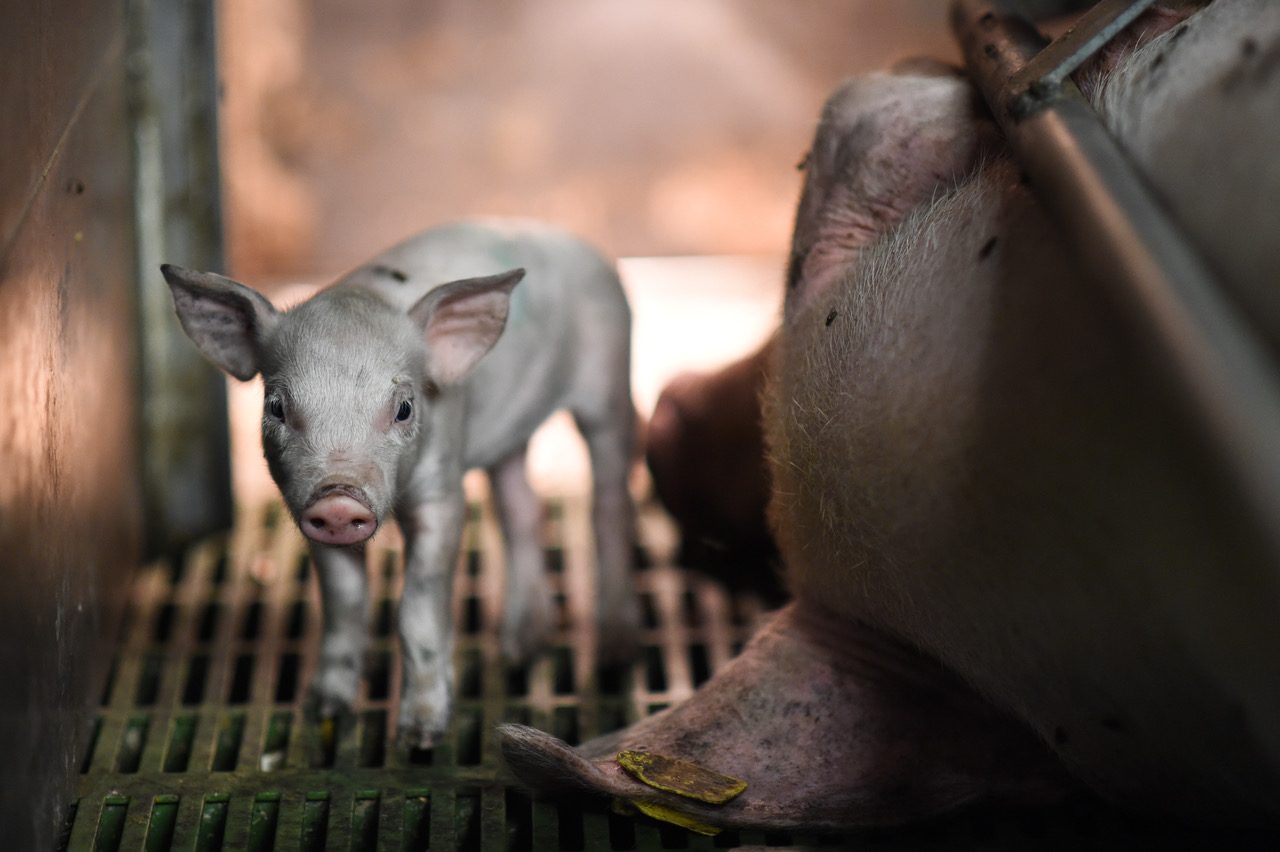
A young piglet moves to stand near his mother’s face. Picture: Jo-Anne McArthur / Essere Animali
What are the most exciting examples of effective animal advocacy you can think of?
TOBIAS: I’m most impressed these days by the entrepreneurial activism (or activist-entrepreneurism) of the founders of companies like Beyond Meat, Impossible Foods, Just, etc. Our arguments to treat animals better and to stop consuming them will be much more easily accepted when we have still better and more omnipresent alternatives. Where people stand depends on where they sit. As long as they believe they’ll lose something, they’ll be defensive. If we can show them there’s good food to be had as a vegan, their hearts and minds may open up more. Hence the importance of creating alternatives.
JAMIE: There are a huge number of ongoing debates within Effective Animal Advocacy, where those involved have differing opinions. Some conclusions are more certain than others, however. One fairly wide-spread idea within EAA is that individual outreach to encourage veganism is a relatively intractable when compared to outreach directly to corporations and institutions. Some of the broad intervention areas that I am most excited about are the development of clean meat, supporting legislative campaigns to restrict factory farming, and research into possible ways to reduce wild animal suffering.
DAMIEN: A lot of the best work is coming from the people we don’t hear about. There are people out there earning large sums of money in corporate careers, making donations to charities who have been evaluated and recommended by Animal Charity Evaluators. These donors are some real heroes of the movement.
HANNAH: The Humane League’s corporate campaigns are very successful, even with huge corporation. .For example, for several months, The Humane League campaigned against the UK’s biggest egg producer, Noble Foods, who were keeping 4.5 million hens in cages in horrific conditions. When the Humane League won the campaign and Noble Foods eventually made a commitment to go cage-free, there was a huge high. I am particularly excited about ‘clean meat’ and its potential to make animal agriculture a thing of the past. A large proportion of my donations go to the Good Food Institute, one of the charities who are working on ‘clean meat’ as well as better plant-based alternatives to animal products.
How can the ordinary person become more effective?
TOBIAS: We need to have an open mind, and not believe that the thinking is done. We need to not be too ideological, and to liberate ourselves from dogma. We need to be open to learning new things and to improve ourselves every day. I think it’s a state of mind. Many people think that once they’ve become vegan, they’ve gotten rid of all shackles, but we need to be careful not be shackled again by new rigid systems of thought.
JAMIE: I recently wrote this blog post on the topic for ProVeg! In short: plan your career carefully to maximise your impact, and engage with the Effective Animal Advocacy research to direct your actions.
DAMIEN: We have unique skills and have so much to offer the animal rights movement. I recommend reading a book by Peter Singer called The Most Good You Can Do. It gives great examples about effective advocacy. I believe that, if you have a passion for writing you should write, if you are a great cook make vegan food and share that with the world. If you are a lawyer earning a lot of money but have no time then perhaps the best thing you can do is to donate to an organisation you believe in or invest in plant-based startups.
HANNAH: There is so much research out there; organisations like Animal Charity Evaluators, Sentience Institute and Faunalytics are very helpful. Meeting people through the Effective Altruism community in London has been incredibly inspiring and has made me think more deeply about how I can use my time and resources wisely to make a bigger difference.
JO-ANNE MCARTHUR on love and concern
